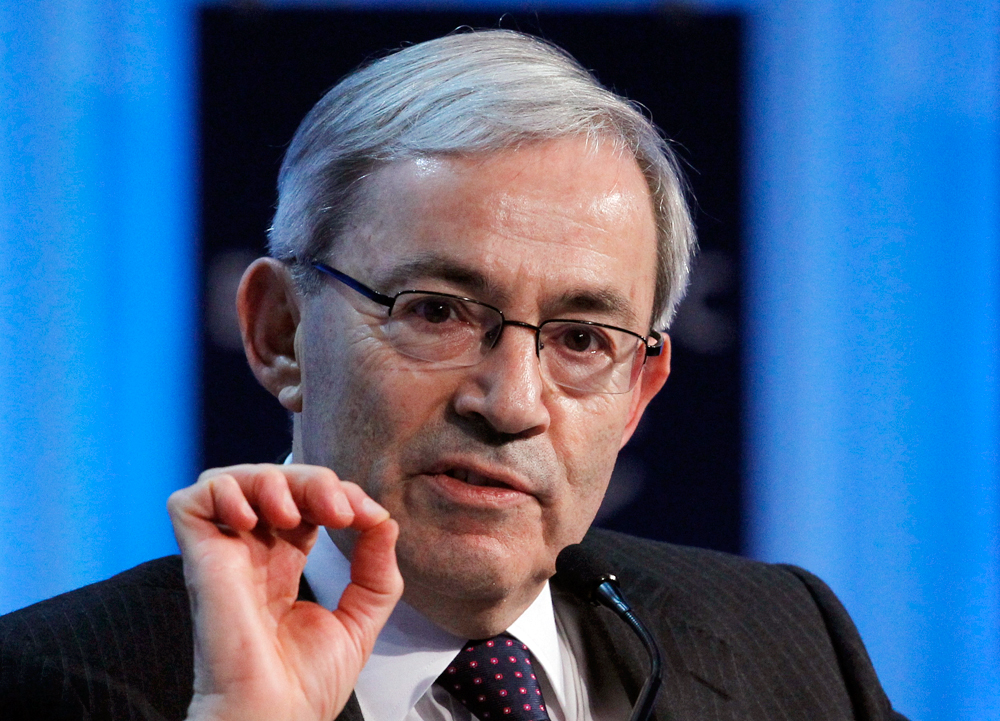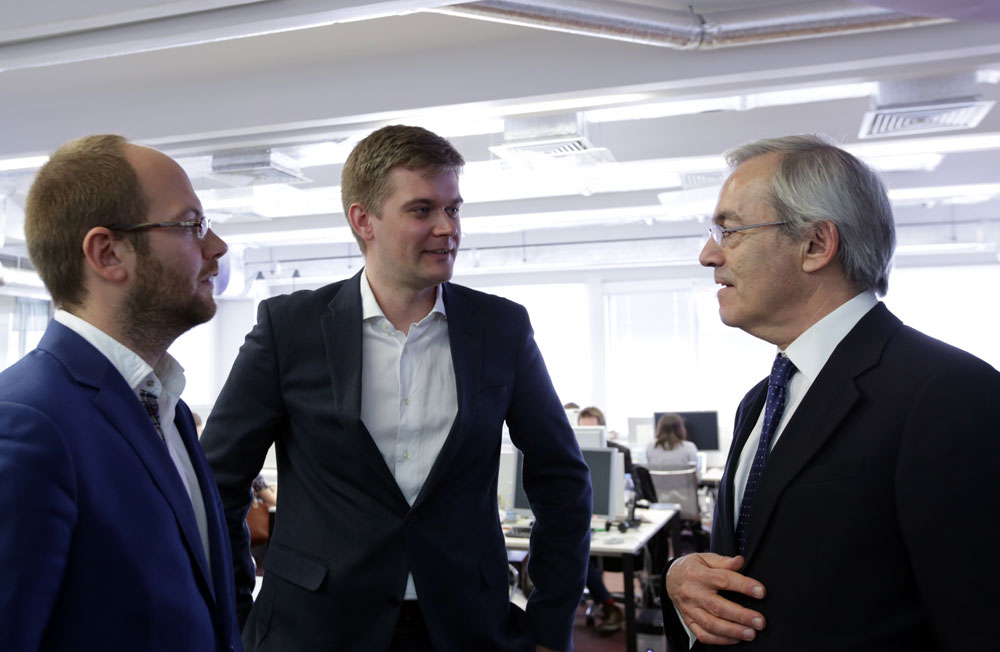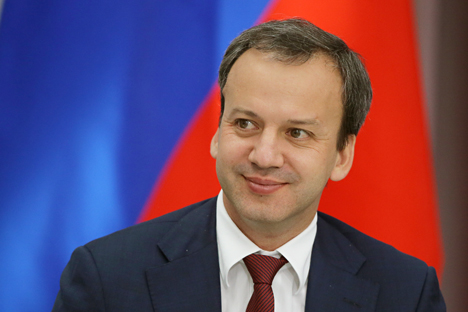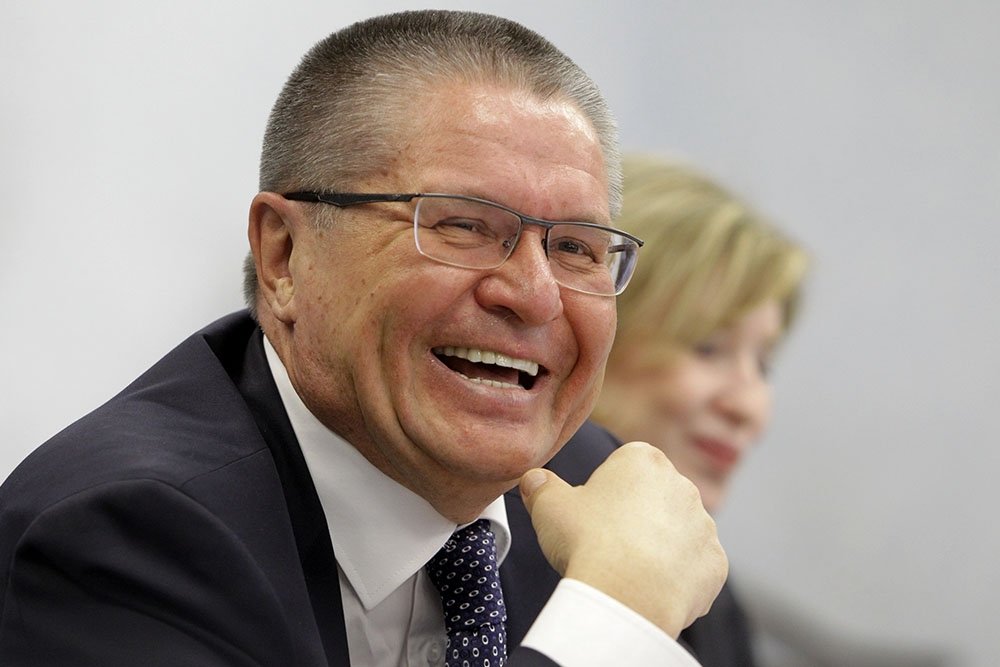Russia should forget oil resources in short term: Pissarides

Christopher A. Pissarides: " In Russia unemployment support by the government is very limited, it is a bad policy and it is keeping unemployment low incorrectly." Source: Reuters
RIR: New start-ups have given birth to a phenomenon called ‘uberisation’ or ‘shared economy.’ How does the recent phenomenon of Uber influence the labor market?
Christopher A. Pissarides: What uberisation does is bring out the entrepreneurial spirit in people, which in the past you did not have the chance to do. It is a very healthy development and something that makes people aware that there are many opportunities in the market.
The legal structure now allows people to make money out of things and use their entrepreneurial spirit. I may be unpopular in saying this but it is a good thing as it brings newer and more interesting jobs. The economy is going through structural changes all the time and we should never look back.
RIR: Apart Uber and other start-ups, robotics are also changing the labour markets all over the world. Can we say that the revolution has already spread from blue-collar workers to the white-collar sector?
C.P.: It is a fascinating development, and is one of the biggest changes we are seeing taking place in the labour market since industrialization and the decline of agriculture. There has not been a bigger shock to the labour market in terms of structure because in the past, whenever we had technology destroying jobs, it was mainly lower skilled jobs being destroyed so all we needed to do was provide more education.
However, now white collar jobs are also being destroyed. Essentially you are destroying the middle management jobs where university graduates aspire to enter and now those jobs are not there. You can see it taking place everywhere now, even in journalism and universities.
You still have the top and the bottom sections like the cleaners and the academics but the middle section no longer exists. Many jobs were looked down upon by many people but these jobs are important. Running old peoples’ homes and children’s homes to a good, professional standard, like in Scandinavia, should be regarded as jobs for university graduates who get training in those areas and should be well paid. Education is another sector and then you have the retail section; although a lot of it is going digital, you still need good people on the shop floor.
RIR: The Russian government recently announced an anti-crisis plan, focused mainly on industry development rather than consumer support. Do you think this is right?
C.P.: I think at this juncture it is probably the right decision to emphasize industrial development and restructuring of the industrial service sector in the economy because Russia, unlike China, does not suffer from insufficient consumer demand in normal times.
You have economies like the Chinese one which suffers from excessive saving, so what they need to do is encourage more consumption.
What Russia needs is an industry that is independent and more flexible, which can adapt to new technology faster. Then it needs to develop the service sector more, because it is the service sector that will provide more jobs in the future.
RIR: With the weak ruble, we are also seeing a decline in consumer demand. People are buying fewer cars and real estate is going down. How can we take that into account in this anti-crisis plan?
C.P.: Factoring this in would be a good thing to do through expansionary policy, monetary fiscal policy. However, that is a temporary problem because of the recession that Russia is going through, and when the economy picks up, the demand will recover. Christopher A. Pissarides visiting RBTH office. Source: Nikolay Korolyoff
Christopher A. Pissarides visiting RBTH office. Source: Nikolay Korolyoff
I am in favour of using fiscal policy to stimulate private demand during a recession, unlike what is being doing in the Eurozone, which I am totally against in terms of management of aggregate demand.
Stimulating consumer demand will not modernize the economy, it would maybe provide new demand and it would see you through this recession but the problems will still be there and sooner or later there will be another shock. Russia needs to get out of this cycle that their economy has been in for quite a while now.
RIR: Could Russia become a desirable place for production because of the decreasing price for labour with the weak ruble? We can now hire more people in dollars and create cheap production for international brands.
C.P.: That obviously contributes but I do not think Russia will ever be considered a low wage economy in the medium or long term where foreign companies will want to come and establish factories.
The primary concern should especially be the labour market environment that foreign companies will look at. The labour cost is just one aspect of that; far more important is the productivity of Russian workers, the willingness of the state to support the labour market with flexible legislation.
RIR: The Russian unemployment rate at the moment is very low at 5.4%. Do you think this shows something in the economy or we are some kind of strange economy?
C.P.: Yes, strange is the right word when looking at Russian unemployment. Some of these divisional structures in the labour market are completely different and give you a different notion of unemployment than say in Britain, France or Germany. In Russia unemployment support by the government is very limited, it is a bad policy and it is keeping unemployment low incorrectly.
RIR: We have seen a few countries that have managed to transform their economies from oil export and production to a more primary sector-based economy. Are there any other models that could be applied to the Russian situation?
C.P.: The success story that everybody knows about is Norway but we also have Chile and Australia. The way that it should be done is to forget that you have these resources in the short term.
You should extract the resources, sell them to the outside world but realize that there is something long term. So, deposit the money you make from those resources into a low risk fund and spend the rate of return or some fraction of it but keep the money there for future generations as well.
In Norway, they use it to pay for the pensions of their ageing population, something that Russia will go into eventually as birth rates are very low. If you do something like that, you can forget you have the resources to get you out of trouble in the short run. Just keep them there, industries can your buy oil and natural resources and then that money will go directly into the fund and then that fund will have a rate of return because it will be invested in.
RIR: We actually have such a fund but it is not working because every time we lose money we want to take some from this pot.
C.P.: Exactly, it is easy to set up a fund but it is difficult to use it in the right way. Even the Norwegian fund, it does enable the government to take money from it if it wants through the central bank but, as far as I know, that has never happened.
If any government dares to do that then they will be in deep trouble as people feel very strongly that that money should be left there. On the other hand, I think in Chile they did take from the fund, but they readjusted their economy away from copper sufficiently so that it is now one of the best performing economies in Latin America.
RIR: You started doing research at St. Petersburg State University three years ago. Have you already achieved any results?
C.P.: There are research associates mainly from St. Petersburg State University addressing individual issues. For example, we have one project that is more or less complete: ‘The Intergenerational Development of Human Capital in the Russian Federation’ where the children of families pursue their own development into the market rather than following the path of the parents which is important for any economy that manages to take advantage of new economic opportunities. What we found is that there is too close a connection between the parents’ education and labour market reforms and the children, which shows there is not as much openness as there should be.
All rights reserved by Rossiyskaya Gazeta.
Subscribe
to our newsletter!
Get the week's best stories straight to your inbox

